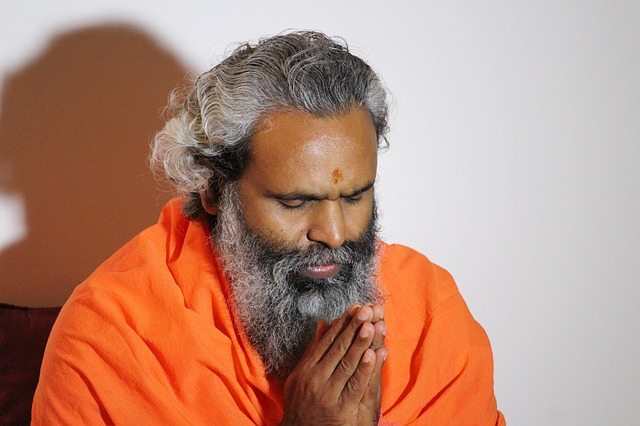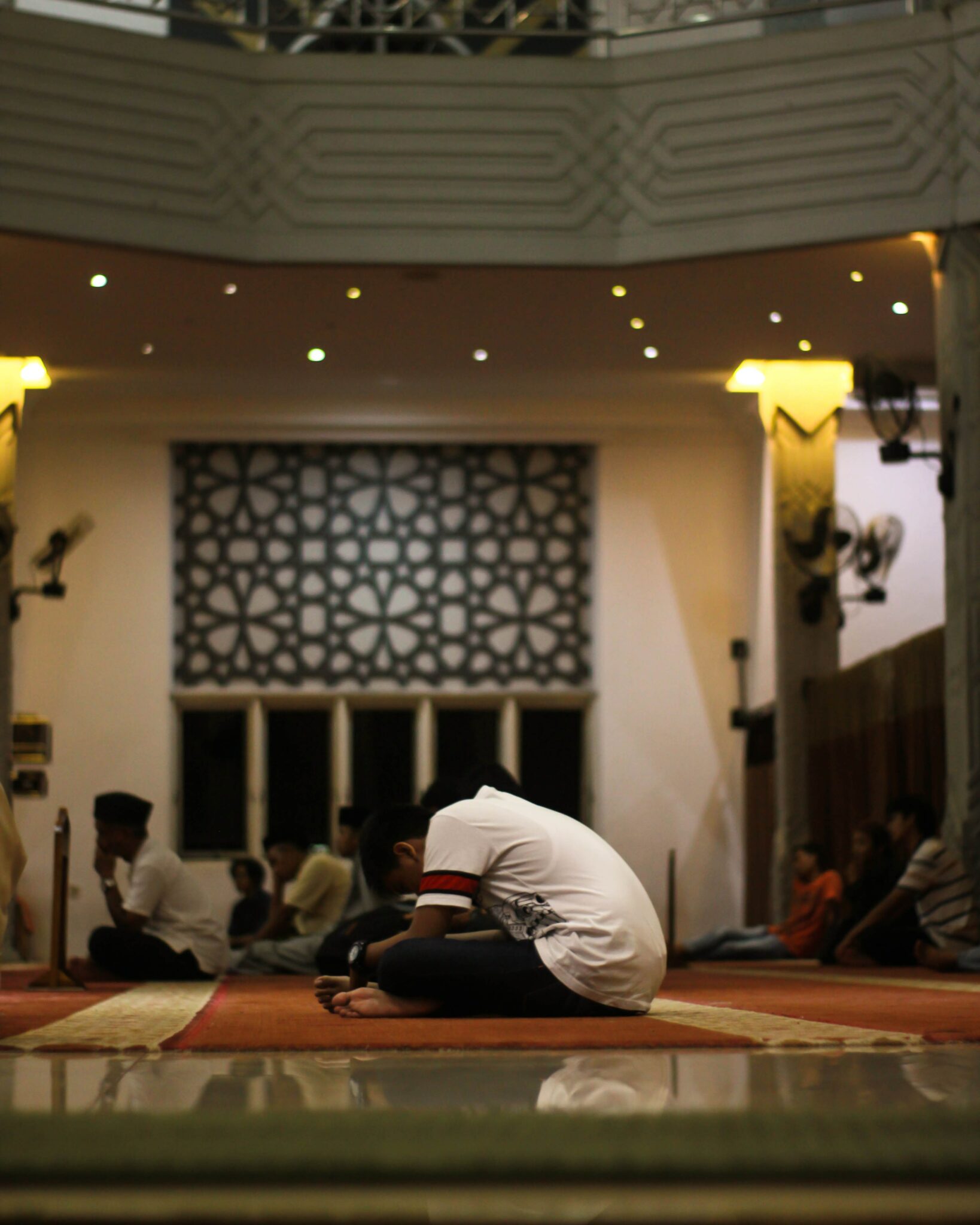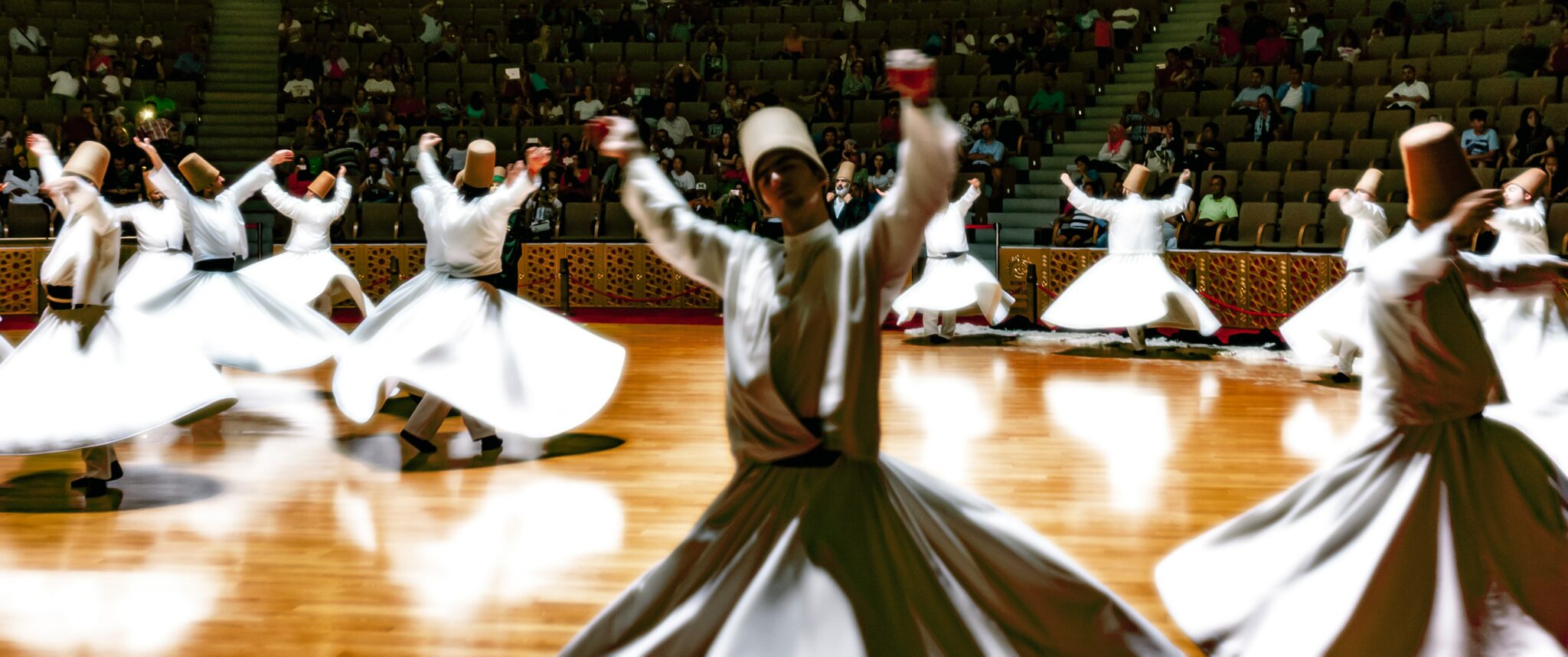I’ve heard it a couple of times as a yoga teacher when I was meeting other people: I can’t do yoga because it’s against my religion. In this article, I want to dive in a bit deeper to see why it might be against someone’s religion to do yoga and what yoga teachers or yourself can do about it to make it suitable for everyone.
And first of all, I’d like to say that I hope I don’t offend anyone by writing this article as I’m just trying to educate myself and others about different cultures and religions. If you found anything that didn’t match at all with your religion, please let us know in the comment section below. The Yogi Life For Me is always open for other opinions and to get educated at things we don’t know a lot about.
Is Yoga A Religion?

So, back to the question if yoga is a religion. In the root of its creators, yoga is deriving from Hinduism, and therefore it used to be a big part of their religion. Now, practicing yoga doesn’t make you Hindu as within the Hindu scriptures it’s stated that you have to be born Hindu and you can’t become Hindu by choice.
But that’s about it for the religious part. When yoga came to the west it got through a very big transformation process. One where yoga hasn’t been fundamentally about religion anymore. A lot of people these days are practicing yoga and not all of them are Hindu.
There has even been a trial from parents that didn’t want their kids to be doing yoga at school as they said there wasn’t a place for yoga because of its spiritual and religious connotation. A judge then ruled that yoga is a phenomenon within the American culture and couldn’t be seen anymore as something that just belongs to one religion.
That, together with millions of people practicing and shaping yoga throughout the years has made that yoga these days is less about religion and more about mindfulness.
Another thing to be said about yoga is that it has a belief system. Although Patanjali didn’t speak a lot about God within his 8 limbs of yoga, there are some ethical rules to be followed. These guidelines on how to live your life aren’t that different from any other culture or religion. These rules aren’t bound by any God, but they are merely guidelines on how to live a good life, which again doesn’t make it a religion.
I talked about the yamas and niyamas before, which are guidelines on how to live a good and honest life, now we’re going to look into other cultures and see if there are any reasons why they shouldn’t or couldn’t practice yoga.
Yoga And Islam
When you think about Islam, you don’t think immediately about yoga. However, more and more Muslims are doing yoga as well and they are seeing similarities between their culture and the yogic culture. Not only that, but within Islam, you’ve also got the Sufis, which when looking closer upon their beliefs, is quite similar to yoga.
Sufism
So, let’s begin with the latter, Sufism. Also known as Islamic Mysticism. The Sufis are actually meditating and chanting and bringing their attention inwards to be closer to god. Not only this, but their practice is also to open up their hearts. Does this sound familiar? I mean, heart openers within yoga?
You might even know a bit already about Sufism without knowing it as Rumi was a Sufi himself back in the 13th century. And even up until this day you can still find very inspirational quotes from him.
I also have to say that they have amazing meditations. One of which is known as sema, which in modern days is also known as whirling. Within this practice, you whirl around your axis to get closer to your center. The repetitive movement and music which is played make that you go into a kind of trance that brings you to no-mind. The state where there are no thoughts.
Not only is it great to look at, but if you have the chance to, it’s great to participate as well to see what it’s really about.
Relating Yoga and Islam
Of course, Sufism is just one branch of Islam and not every Muslim could be called a Sufi. Therefore, we have to take another look as well to see whether or not Muslims can or can’t practice Yoga. And within my search for my answer, I came across this article, an interview with Sadaf Jamal. A Muslim woman who is also a yoga teacher (hint, this already means that it’s not completely forbidden to do yoga).
Yet again, there is no simple yes or no answer on whether or not you can practice yoga as a Muslim. For this, we have to go back to the beginning of our article where it states that yoga used to be a big part of the Hindu culture, yet today it’s been transformed into something more spiritual than religious.
This means that if you look like a Muslim at yoga in a way that it’s about mindful, rather than about getting closer to god, it’s allowed to practice. It does mean of course that you can’t be singing mantras that are dedicated to the Hindu gods. Which I think is more than normal considering that I also wouldn’t chant a Sufi mantra as Islam isn’t my religion.
If we even take a look closer to spirituality, you can say that it’s not about God. Spirituality is a philosophy on how to live your life and how you fill it in, is your choice. For this, we can look at Buddhism as well. They aren’t always seen as a religion as they don’t have a God to worship. This makes Buddhism, just as yoga, a way of life, which can easily be incorporated within a religion.
To conclude, here’s another article where a couple of Muslim yogis are interviewed and they’ve given their view on yoga and Islam. It’s a great read and it talks a bit about the similarities even between Islam and Yogic philosophy.
Yoga In Other Religions

Therefore, you can replace the header above with Yoga and Judaism, Yoga and Christianity. All of the articles that I looked upon had the same thing to say, they are all having the same kinds of thoughts and the same kind of ideas. If you don’t look at yoga as a religion, it’s possible to practice it whether you are a jew or a Christian.
The next chapter in this article will be for us yoga teachers, as we have to make sure that everyone coming to our classes feel welcomed and appreciated. Of course, non-teachers can read on as well if they’d like to have an in-depth talk about how to deal with multicultural students ;).
Teaching Yoga Non-Religious
The world these days is getting more and more multicultural. Which is a challenge, but also a very great thing as we starting to mix and learn from each other. So let’s just say that it is a very interesting challenge. As a yoga teacher, we’ll also meet different cultures and when we go abroad to our teacher training, we will meet even more cultures. But how can we deal with it in our classes? There are a couple of things you can do to make sure everybody is welcome in your classes.
Namaste for Other Cultures
During our training, we’ve learned the meaning of the salutation of Namaste. Which stands for equality of everyone around and is an acknowledgment that we all derived from the same energy, which makes us the same. However, not every culture is allowed to say this greeting and therefore we have to be aware that not everyone will be comfortable when you open with namaste in your classes.

In short, when you see someone coming into your class that is wearing or addressing that he or she has a different religion, you can tell them that they can reply in whatever way they’d like. And yes, it’s just easy as that.
Don’t be afraid of addressing something like this, as not doing so might have even more consequences than going into dialogue. Your students will feel seen and appreciated and there’s a bigger chance that they’ll come back to one of your classes!
Mantras for Other Cultures
Another part of teaching yoga to a multicultural class is the singing of mantras. This might be a bit more difficult as not everyone can sing all of the mantras that are out there. Luckily they aren’t all religious and there are a couple you can choose that are very neutral and very powerful as well. With the following mantras, you actually can’t do anything wrong. But I do have to say that ‘om Namah Shivaya’ isn’t one of them, so better to avoid the latter.
Lokah Samastah Sukhino Bhavantu
Said, this mantra is about wishing everyone the best of luck and that you hope you can attribute in other people’s happiness. There’s nothing wrong singing this one, am I right?
Om Shanti Shanti Shanti
This one is a chant of peace. No harm in that one either!
Conclusion
That’s about it in this article about religion and yoga. With a small piece on how to take care of students with other religions in your yoga classes. And of course, I hope this opens the doors as well for people from other religions to try a yoga class and to break the taboo that yoga is about religion as well.
If you have more questions, feel free to ask them in the comment section below.
Nama-stay wonderful!






Yes! That’s right .. I’m one of the practitioners of yoga too and Christian religion. However, there were some people around me who told me not to do yoga, because I would betray my God. But, What am I doing? I just smiled and nodded and said thank you for your attention.
Sound strange? Yes, right! And that is reality!.
In my opinion sometimes there are some people who are too fanatical about religion, so that every practice that they think comes from other religions, should not be carried out.
Though Yoga is one type of sport that is increasingly trending day by day. Because it is proven to provide positive health effects. In addition, it is easy and can be practiced anywhere.
Hi Ronnytan, thank you for sharing your opinion and your story with us! I hope you keep on practicing despite the fact people in your area being against it!
Thanks very much admin for this article, let me call it an eye and mind opening article because by it I have got to know more about religion and yoga that’s to say the different thoughts of people from different religions about yoga and I have been opened my mind that yoga is not such a religious act. Thanks very much for this information.
Thank you Mugalu, great to hear that you enjoyed the article!
You made some great points with this article. I practice yoga and for me personally there is almost nothing religious. I see it as a way of relaxing myself and easing my mind. And to do that I do different breathing techniques, I meditate as well and do different Yoga positions. I really see it as a way of exercising, if you can say it that way.
So for me, it is perfectly natural to go with something it feels good and it makes you relaxed and calm, no matter if it is not from your religious background.
Thank you.
Strahinja.
Hi Strahinja, thank you for your comment, it’s good to hear that you don’t see it as a religious system, I think we have to step away from this to make yoga more inclusive for everyone! However, I do see that it’s also important to find a balance of course between the philosophy and exercises itself, to make sure it doesn’t become just a relaxation method 😉